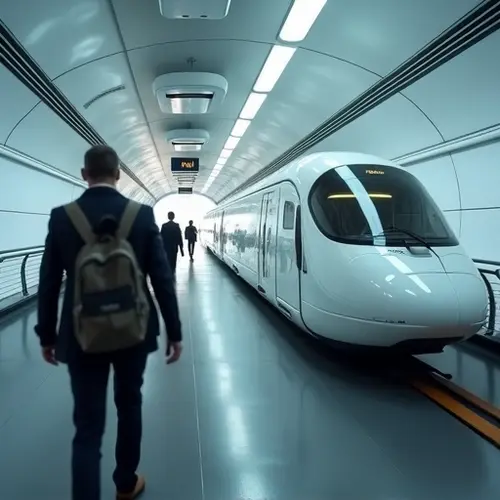
Hyperloop Projects Around the World: A Global Update
The Hyperloop, a high-speed transportation system conceptualized by Elon Musk in 2013, continues to captivate the imagination of engineers, governments, and investors worldwide. This futuristic mode of transport promises to revolutionize travel by propelling passenger pods through low-pressure tubes at speeds exceeding 700 mph. Here’s an update on the most active Hyperloop projects across the globe.
North America
In the United States, Virgin Hyperloop One has been a pioneer, conducting the first human trials in 2020. The company is exploring routes connecting major cities like Chicago, Cleveland, and Pittsburgh. Meanwhile, TransPod, a Canadian firm, is advancing plans for a Hyperloop corridor between Toronto and Montreal, aiming to reduce travel time from over five hours to just 30 minutes.
Europe
Europe is making significant strides with projects like the European Hyperloop Center in the Netherlands, set to begin testing in 2024. Hardt Hyperloop, a Dutch company, has demonstrated lane-switching technology, a critical milestone for operational flexibility. Additionally, Switzerland’s Swisspod Technologies has unveiled a circular test track to simulate infinite Hyperloop trajectories.
Asia
India is emerging as a key player, with the government funding a 410-meter test track at IIT Madras. The project aims to develop a Hyperloop system connecting Chennai and Bengaluru, reducing travel time to 15 minutes. South Korea, despite shelving its Seoul-Busan project, has launched research into maglev propulsion for a next-generation Hypertube system.
Middle East
Saudi Arabia has partnered with Virgin Hyperloop One for a feasibility study, envisioning a network that could transform regional connectivity. The study focuses on passenger and cargo transport, leveraging the kingdom’s strategic location.
Challenges and Future Prospects
Despite the enthusiasm, Hyperloop faces hurdles like high costs, regulatory challenges, and technological uncertainties. The bankruptcy of Hyperloop One in 2023 underscored these difficulties. However, ongoing research and international collaborations suggest that the dream of ultra-fast, sustainable transport remains alive.
For more details, visit Wikipedia.

 Nederlands
Nederlands
 English
English
 Deutsch
Deutsch
 Français
Français
 Español
Español
 Português
Português